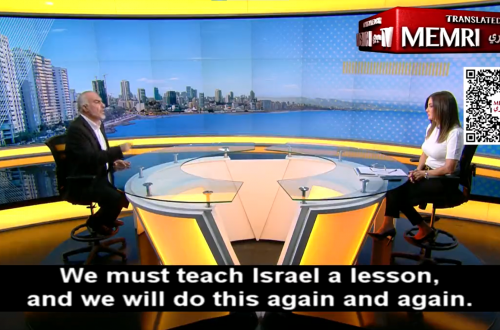Some may dislike the term ‘Islamism’ because they think that theocratic (and particularly violent) manifestations of Islam, are not authentically Islamic, and believe the word is susceptible to ‘mission creep’, becoming almost synonymous with Islam.
Others avoid the term for the very different reason that they believe what is generally referred to as ‘Islamism’ is true Islam, meaning that there is no need to distinguish between the two – and to do so may be misleading.
Here Charlie Klendjian puts forward a great many reasons for rejecting the term. However he does recognize why some people want to draw a distinction between Islam and Islamism:
[The term Islamism] attempts to separate the private practice of a religion from the enforcement of that religion on to others. Fair enough. But although I recognize the term Islamism has this aim, I just don’t think we need a separate word to achieve that aim. I think it can even lead to some serious problems, which I outline below.
And he goes on to confirm that he does not think all Muslims are bad, or in any way a homogenous group. More importantly – because some see Islam as wholly evil while acknowledging individual Muslims can be good – he recognizes a plurality of traditions and teachings within Islam. I’ll quote this section in full, as I want to return to it:
Also, by refusing to acknowledge the term Islamism, or at the very least merely questioning it, I’m not for one moment saying Muslims are a homogenous mass or that all Muslims are [insert negative characteristic here]. I wholeheartedly acknowledge that all Muslims are individuals. Nor am I saying there’s only one form of Islam. The existence of different sects and traditions within Islam is a fact. I just think we can make all these points without inventing a new word. We can make all these points with normal, everyday language and normal, everyday reasoning.
Here are responses to some of his key points.
This is his first objection:
‘Islamists’ call themselves Muslims
A fairly elementary point, but a fundamental one. Islamists call themselves Muslims – they don’t call themselves “Islamists”. And they call their ideology Islam – they don’t call it “Islamism”.
I submit that it’s reasonable to describe these people and their ideology with the same words they use.
As a non-Muslim I’d be unlikely to deny that anyone who identified as such was a Muslim. So I agree that ‘it’s reasonable to describe these people’ as Muslims. I also wouldn’t deny that extremists are following a version of Islam, although clearly it’s not one all Muslims would agree with. So I wouldn’t say ‘there’s nothing Islamic about ISIS’ (or whoever). But when perhaps dealing with the threat in broader terms it’s useful to be able to use precise terms which make it clear you don’t think all Islam, certainly not all Muslims, are the problem. This is where ‘Islamism’ comes in handy. If you refer to ‘the Muslim threat’ or ‘the threat from Islam’ you’re in danger of implicating all Muslims, an entire religion, whereas ‘the Islamist threat’ is more specific. (I realize some do want to implicate an entire religion, but CK seems to have made it clear that he does not.)
He goes on to remind us that we don’t have similar terms for extremists from other religions. That’s a fair point, but we do generally distinguish in some other way between moderate and fanatical types, using labels such as ‘Westboro’ or ‘Kahanist’ or whatever. One reason we don’t use the ‘ism’ formula with other religions is that it would sound silly – but although no one refers to ‘Hinduismism’ we might refer to ‘Hindutva’.
Although earlier Charlie Klendjian acknowledged different strands of Islam he goes on to imply that the term ‘Islamism’ causes Islam itself to go unchallenged.
By using the word Islamism we insulate Islam from sorely-needed scrutiny. We generously move the spotlight away from Islam when we should be doing the opposite. We give Islam a free pass. Islam does not deserve this free pass. No religion deserves a free pass. If anything, based on the eye-watering amount of harm that Islam is causing throughout the world as I write these words, Islam deserves a far greater scrutiny than the other religions.
Clearly it’s possible to argue (as Klendjian does) that for whatever combination of reasons Islam is either inherently or contingently more problematic than other religions. (This point is made by Psybertron here.) But if liberal Muslims are in a minority compared to liberal Jews and Christians, all the more reason to offer them some support by reinforcing the fact that Islamism, although it’s certainly a subset of Islam, is not identical with it.
I completely agree that there should be no taboo in criticising any religion. However this statement was, for me, an indication of the usefulness of the term ‘Islamism’ as an alternative to Islam:
And thirdly, as recent events in Paris and Copenhagen have reminded us (as though we needed reminding), there are deadly – yes, literally deadly – consequences for those who refuse to follow Islam’s rules.
Clearly the killers were Muslims acting in the name of Islam, and in a way which could be mapped on to established traditions within the religion. However even many ‘Islamists’ would condemn those attacks, and many Muslims would argue that the victims were not breaking ‘Islam’s rules’. For a non-Muslim to speak about Islam in this way is the flip side of insisting that atrocities such as the murder of Lee Rigby have ‘nothing to do with Islam’.
He goes on:
We want people to join this debate. We don’t want further barriers to entry. But the term Islamism does precisely that: it creates an additional hurdle for people to clear.
But for some it may take away a barrier – particularly for those (Muslims or non-Muslims) who prefer not to frame this as a problem with (all of) Islam.
Klendjian goes on to make an important distinction between criticising ideas and criticising people. Of course he should be able to criticise or mock Islam as a whole, or any aspects/strands of Islam. But again there is perhaps some contradiction here:
I have heard secularists argue that using the term Islamism is important to demonstrate they’re not “attacking” Islam. But hang on, stop there. You can’t “attack” a set of ideas anyway. Why are secularists talking in such terms? Secularists have spent enormous energy educating people that ideas don’t have rights, but here they are suggesting that one religion and one religion alone does have rights because apparently we must not “attack” it.
At the beginning of his post he wrote:
Nor am I saying there’s only one form of Islam. The existence of different sects and traditions within Islam is a fact.
To make that point after making the irrefutable point that not all Muslims are bad seems to imply strongly that not all forms of Islam are bad. There wouldn’t be much point in pointing out that Islam is a plural faith if you thought all sects/strands as bad as each other. If Charlie Klendjian really just wants to attack Islam in its entirety, and argue that it’s all Islamist really, that’s up to him, but if he doesn’t, then he ought to acknowledge that secularists who prefer to use the term Islamism in order to avoid ‘attacking Islam’ are making a reasonable distinction between different ways of interpreting that religion.
There’s some further slippage here:
Some people seem concerned that a failure to use the term Islamism risks “homognenizing” Muslims. This is rubbish. As I have already said, ideas are separate to people. And I have already said I acknowledge all Muslims are individuals. Some Muslims are good people and some are bad.
If we say X about Islam it doesn’t follow we’re saying X about Muslims. We don’t have this nervousness when scrutinising other religions. For example, we can quite comfortably assert that the book of Leviticus is clearly homophobic without for a moment inferring all Christians are homophobic.
Again, we seem to have moved away from the assertion that Islam is not monolithic. The analogy between ‘Islam’ and the book of Leviticus (an imprecise parallel given that Leviticus is not a religion) implies that Klendjian is interpreting Islam in the same way as more conservative followers (and I’m not denying that there are very many of these).
I don’t agree that distinguishing between Islamism and Islam implies that the former is not Islamic, that it has nothing to do with the teachings of Islam, including mainstream positions. What ‘Islamism’ does perhaps offer is a reminder that not all interpret Islam in this way – which means (if you believe it’s a man-made religion) that Islam is not simply Islamism. Looking at Klendjian’s paragraph 10 – there is nothing here which hints that there could be other more benign readings of Islam. I’m not saying they are ruled out here, just that they are completely absent, and the paragraph could have been written by someone who does not see those different strands within the religion which the writer in fact drew attention to right at the beginning of the piece.
In the next section he describes the imposition of halal food as ‘Islamism’, to underline how unhelpful the term is. But this use of halal food by caterers for various reasons is hardly ‘enforcement of that religion on to others’ in any meaningful sense.
But refer to a KFC chicken bucket as an example of Islamism and people will laugh at you and call you “racist”.
Do you see the irony here? Usually you will be called racist for “incorrectly” using the word Islam instead of Islamism. Here, though, play your tormenters at their own silly word game and use the term Islamism “correctly” and you will still be called racist anyway. At this point, nothing makes sense.
This use of halal food is not enforced by the government, and you can always choose to eat somewhere else. If Charlie Klendjian really thinks this is an instance of Islamism it’s probably just as well he avoids the word.


